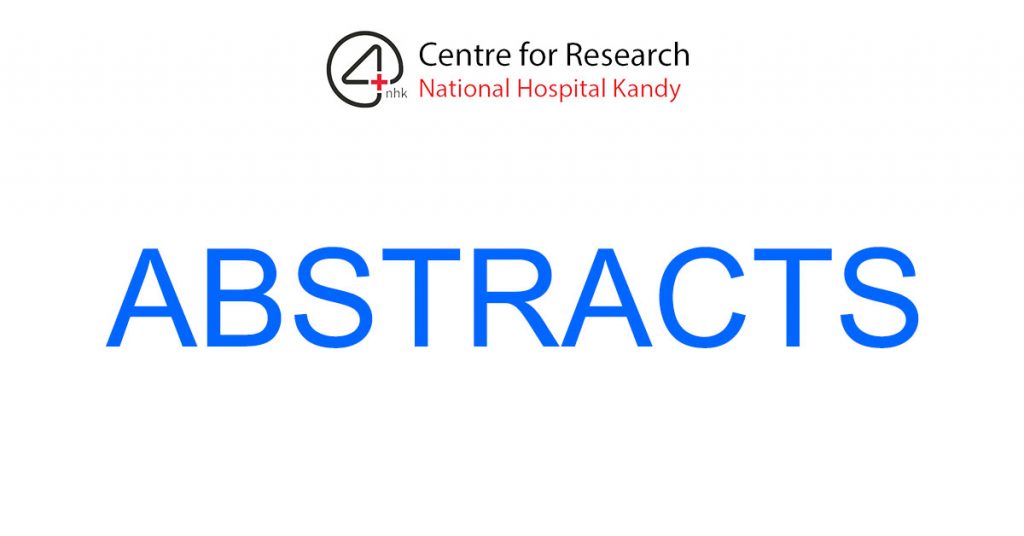Proceedings of Peradeniya University International Research Sessions 2021, Sri Lanka, Vol. 23, 11th & 12th November 2021
iPURSE 2021 – 262 Health and Society
Dietary Knowledge and Practice in Patients Undergoing
Continuous Ambulatory Peritoneal Dialysis
D.R.T.S. Dasanayake1,2*, A.M.S.D. Pathiranage1, H.G.N. Erandika2,
M.A.A. Nayanamali2,3, S.D.B.P.P. Samarasekara1,2 and N. Nanayakkara2
1Department of Nursing, Faculty of Allied Health Sciences, University of Peradeniya,
Peradeniya 20400, Sri Lanka
2Center for Research, National Hospital Kandy, Kandy, 20000, Sri Lanka
3Department of Fundamental Nursing, Faculty of Nursing, University of Colombo,
Colombo 00300, Sri Lanka
*[email protected]
Adhering to multiple dietary recommendations may be difficult to follow but crucial in
maintaining optimal nutritional status in patients on Continuous Ambulatory Peritoneal
Dialysis (CAPD). Adherence to these recommendations require patients to have a clear
knowledge on type, quality, and quantity of food they consume. Objectives were to
assess the participants‘ dietary practices and dietary knowledge on foods they consume.
This cross-sectional study was conducted on randomly selected 102 CAPD patients at
National Hospital, Kandy. An interviewer-administrated questionnaire and a food
frequency questionnaire were used to collect dietary data. Daily dietary intake was
compared with European Society for Parenteral and Enteral Nutrition guideline
recommendations. Knowledge on food sources were assessed in relation to protein,
calories, potassium, phosphorus, and sodium. The mean age of the participants was
54.91±12.57 years and 35.3% (n=36) were females. Percentage of participants who had a
poor knowledge on nutrients were; protein (44.11%), phosphorus (95.09%), calorie
(98.03%), sodium (67.64%), potassium-fruits (51.9%) and potassium-vegetables
(60.78%). Dietary practice was described in relation to adherence to guideline
recommendations. A minority who had a good knowledge on nutrient components in
consuming foods also did not always follow good practices. Dietary practice was
significantly associated with monthly income (p=0.007), age (p=0.01) and treatment
duration (p=0.046). Majority of the participants had a poor awareness of deciding daily
amount of food allowances predominantly for protein (96.1%), phosphorus (85.3%) and
potassium (81.4%) resulting in unsatisfactory dietary practices. Majority [80.4% (n=82)]
had a poor knowledge on nutrient composition in foods they consume. The participants
whose knowledge was good also had unsatisfactory dietary practices proving that good
knowledge does not always translate to better practice. Therefore, dissemination of
proper knowledge is important. An effective education model on nutrition could be
easily implemented through nursing officers, with the support of multidisciplinary team
involving nutritionists, medical doctors, and counselors.
Keywords: Dietary knowledge, Dietary practice, Recommendations, Nutrients
![]()

